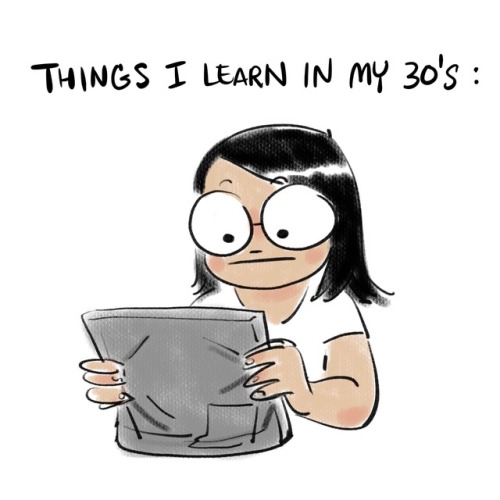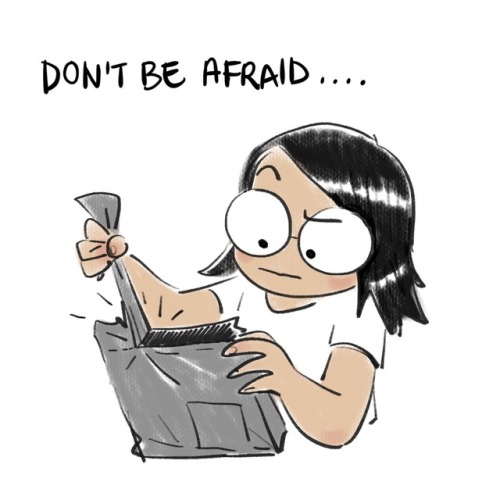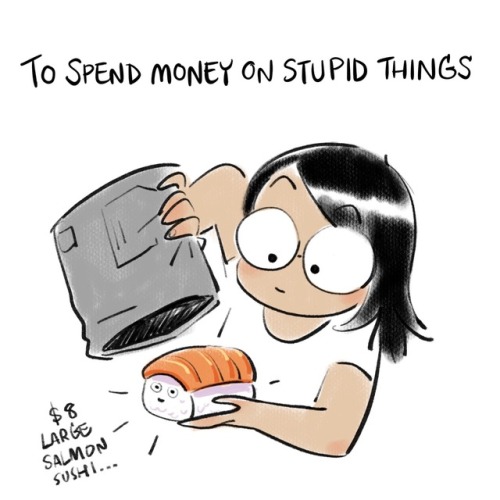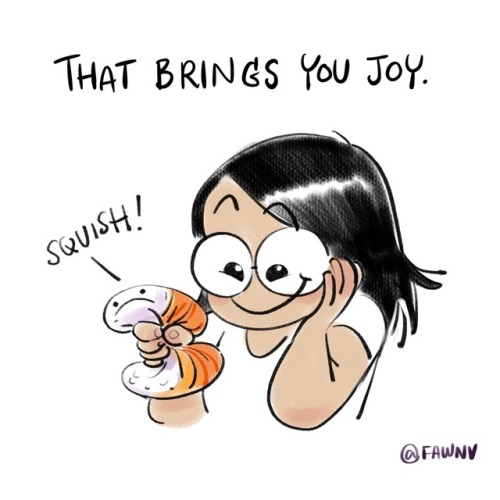Sundove - POSITIVITY
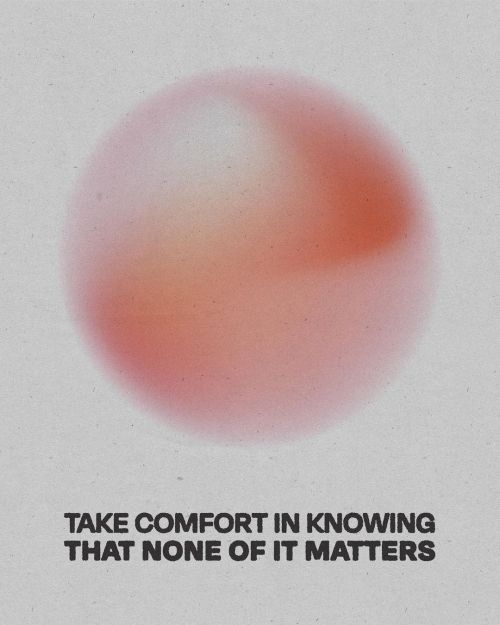
More Posts from Sundove and Others




Not everything can be solved by just throwing in more effort. Sometimes you need to step back and look for a different way to tackle the problem!
Chibird store | Patreon | Webtoon
How to make and use a Coping Board
A coping board is used to help you keep yourself “on schedule” throughout your day. It can be used by people who have trouble doing “daily” tasks like showering, eating, or taking medication. It’s also beneficial to people who have trouble keeping track of what they’ve done that day due to mental health related memory problems. This is also beneficial to people who (like me) don’t have the energy to make daily to do lists because that task alone is pretty exhausting and depending on my mental state can be overwhelming. By having a set list of things already prepared, it makes my tasks less draining.

This is what a Coping Board is, a piece of cork board with short lists of things you want to or should be doing. I made my lists out of index cards, and I continue to add them as I have the energy or remember things I want to do. First, start with tasks you want to complete each morning

This is what my “morning” list looks like. As I complete each task, I move the pin from To Do to Done. This helps me keep track of what I have already done this morning and what I still would like to accomplish. You don’t have to do them in any particular order, it just so happens I did my first four in order today.
Next, make a list of things you’d like to do each night before you go to bed.

This is what my “nighttime” list looks like. I also reset my morning list as I complete my nighttime list, so its ready for me the next day.
You can also add other lists that pertain to you. For example, I have a very hard time keeping track of what day of the week it is, so I added a “day of the week” list.

Each morning when I wake up, I move the pin to the next day. I also added a list of things I’d like to make sure I do at least once a week.

Personally this list is more of a “wish list” of things I don’t want to forget about, but definitely don’t always have the energy for. I reset this list every Sunday.
Finally, you can also add things that you use as self care tactics or coping skills. For me, since I practice energy work, this list is mostly about changing the energy of my personal space in my room.

I try to do these daily, but sometimes weekly is more realistic.
The great thing about a Coping Board is that its so easy to add or remove things from your schedule. If you have a medication change, you can make a sheet to help you remember what dosage to take each day as you transition. This is my summer board, but during the semester I would probably add different lists for each of my classes or things I need to complete like a paper or an art assignment. The possibilities are endless, and it’s easy to customize to what you need most.
I hope this has been helpful for all of you! Good luck, and stay safe everyone.
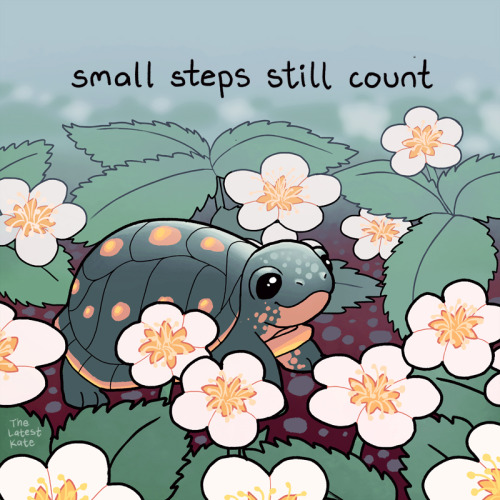
Shop , Patreon , Books and Cards , Mailing List
Little tips for when you feel bad and don’t know why.
-Ask yourself the last time you drank some water. Drink a few sips even if it wasn’t long ago. Coffee doesn’t count (neither does soda unless it’s the only option)
-When was the last time you ate? Get a small snack if able.
-Are ANY of your clothes too tight or uncomfortable? This includes socks, headbands, hats, and shoes.
-Stretch! Pop those shoulders, arch that back, straighten those legs. It Helps.
-If you happen to stim, do it! Do whatever feels right!
-Look for sounds, smells, etc. That are bothering you.
-Get your headphones and put on whatever music makes you feel happy/good/energetic.
-Loosen your shoulders, take some deep breaths. Drop your head and loosely roll your head. Try to relax as many muscles as you can.
-Close your eyes for a second.
-Did you take your meds (if you have them)? Do you need to take a Tylenol, ibuprofen Etc.?
-Are there allergens in the vicinity, are there any allergy medications you need to take?
-Breath deep.
I am by no means a professional and I don’t know what could be causing it but I know that these are kind of helpful. I’m not you and you aren’t me so these might not work. If the feeling bad is medical attention worthy, these might not help.
However, I hope that this does help someone.

°˖✧*• Shop, Patreon *•. ✧˖°`
a lot of people forget about color correcting or don’t know how helpful it is:
green concealer: cancels out red blemishes, scars, scratches, rosy cheeks, rosacea etc
orange concealer: cancels out blue undertones such as 5 o'clock shadows, bruises, hickeys, dark circles. (orange primers are also good for freckles and any ashiness in medium to dark skin tones)
purple concealer: neutralizes yellow skin complexions or yellow bruises.
always color correct before applying foundation and never after, it changes the color of your base. youre welcome
-
 naifainlove liked this · 2 weeks ago
naifainlove liked this · 2 weeks ago -
 imanifesteditxo reblogged this · 2 weeks ago
imanifesteditxo reblogged this · 2 weeks ago -
 uwntrllyrdths reblogged this · 2 weeks ago
uwntrllyrdths reblogged this · 2 weeks ago -
 littlelotusgirl reblogged this · 2 weeks ago
littlelotusgirl reblogged this · 2 weeks ago -
 amormio-deactive reblogged this · 3 weeks ago
amormio-deactive reblogged this · 3 weeks ago -
 digitalcommonplace reblogged this · 3 weeks ago
digitalcommonplace reblogged this · 3 weeks ago -
 lacevalance reblogged this · 3 weeks ago
lacevalance reblogged this · 3 weeks ago -
 nowhereisnearenough liked this · 4 weeks ago
nowhereisnearenough liked this · 4 weeks ago -
 oceanyou liked this · 4 weeks ago
oceanyou liked this · 4 weeks ago -
 haus-eksovision reblogged this · 4 weeks ago
haus-eksovision reblogged this · 4 weeks ago -
 onlyans reblogged this · 4 weeks ago
onlyans reblogged this · 4 weeks ago -
 onlyans liked this · 4 weeks ago
onlyans liked this · 4 weeks ago -
 anesthesia05 reblogged this · 4 weeks ago
anesthesia05 reblogged this · 4 weeks ago -
 anesthesia05 liked this · 4 weeks ago
anesthesia05 liked this · 4 weeks ago -
 cabaret-anonyme liked this · 4 weeks ago
cabaret-anonyme liked this · 4 weeks ago -
 paintspillingblueblood liked this · 4 weeks ago
paintspillingblueblood liked this · 4 weeks ago -
 n2aether liked this · 4 weeks ago
n2aether liked this · 4 weeks ago -
 raven-haired-sephiroth liked this · 4 weeks ago
raven-haired-sephiroth liked this · 4 weeks ago -
 koyot3 reblogged this · 4 weeks ago
koyot3 reblogged this · 4 weeks ago -
 koyot3 liked this · 4 weeks ago
koyot3 liked this · 4 weeks ago -
 serekos liked this · 4 weeks ago
serekos liked this · 4 weeks ago -
 tribaljedi reblogged this · 4 weeks ago
tribaljedi reblogged this · 4 weeks ago -
 seriocopulo-the-old-man reblogged this · 1 month ago
seriocopulo-the-old-man reblogged this · 1 month ago -
 change-of-h34rt reblogged this · 1 month ago
change-of-h34rt reblogged this · 1 month ago -
 hangawi reblogged this · 1 month ago
hangawi reblogged this · 1 month ago -
 tarabyars liked this · 1 month ago
tarabyars liked this · 1 month ago -
 77itsrihc liked this · 1 month ago
77itsrihc liked this · 1 month ago -
 blueflow liked this · 1 month ago
blueflow liked this · 1 month ago -
 richiedaggerz reblogged this · 1 month ago
richiedaggerz reblogged this · 1 month ago -
 ab-e-gail liked this · 1 month ago
ab-e-gail liked this · 1 month ago -
 ewsforos-again reblogged this · 1 month ago
ewsforos-again reblogged this · 1 month ago -
 ewsforos-again liked this · 1 month ago
ewsforos-again liked this · 1 month ago -
 fraction--unbound reblogged this · 1 month ago
fraction--unbound reblogged this · 1 month ago -
 tsvnami liked this · 1 month ago
tsvnami liked this · 1 month ago -
 hivitr reblogged this · 1 month ago
hivitr reblogged this · 1 month ago -
 hivitr liked this · 1 month ago
hivitr liked this · 1 month ago -
 coincharm reblogged this · 1 month ago
coincharm reblogged this · 1 month ago -
 veryprivateart liked this · 1 month ago
veryprivateart liked this · 1 month ago -
 jmus18 reblogged this · 1 month ago
jmus18 reblogged this · 1 month ago -
 indig0w0 reblogged this · 1 month ago
indig0w0 reblogged this · 1 month ago -
 indig0w0 liked this · 1 month ago
indig0w0 liked this · 1 month ago -
 lonelycatmom reblogged this · 1 month ago
lonelycatmom reblogged this · 1 month ago -
 pensamentosporescrito liked this · 1 month ago
pensamentosporescrito liked this · 1 month ago -
 dzeeks reblogged this · 1 month ago
dzeeks reblogged this · 1 month ago -
 blacksummer-rose reblogged this · 1 month ago
blacksummer-rose reblogged this · 1 month ago -
 blacksummer-rose liked this · 1 month ago
blacksummer-rose liked this · 1 month ago -
 frost513 reblogged this · 1 month ago
frost513 reblogged this · 1 month ago -
 artbyginger liked this · 1 month ago
artbyginger liked this · 1 month ago
